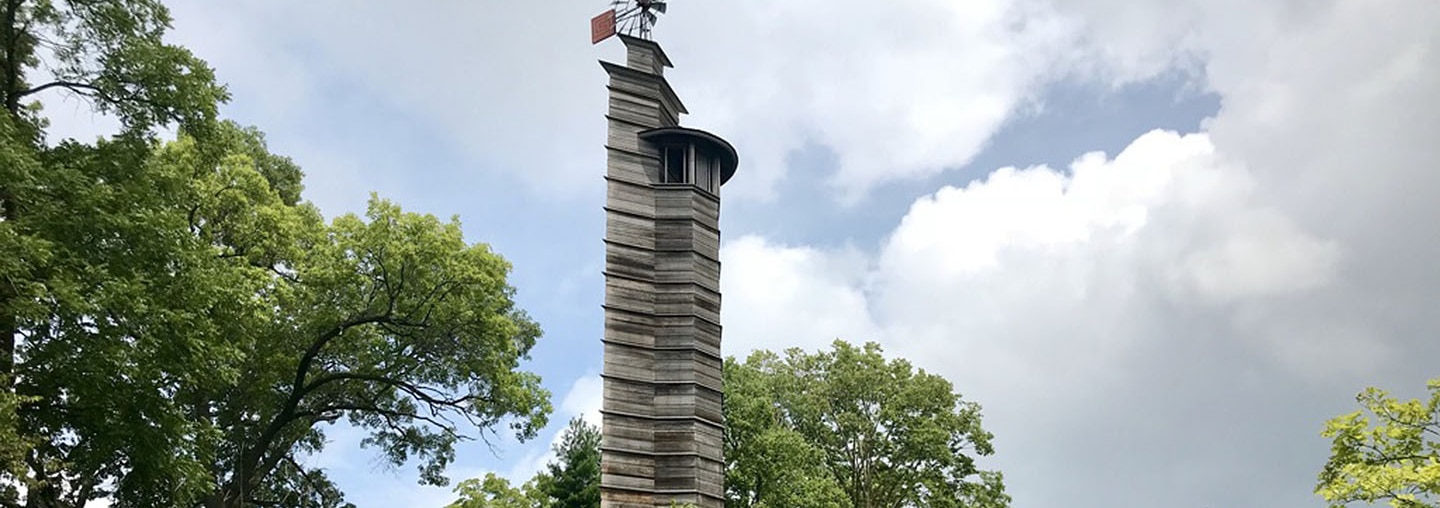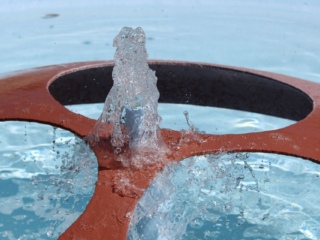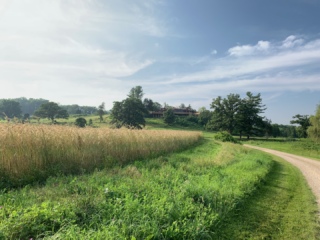
Living with Nature: Recycling and Reusing
Frank Lloyd Wright Foundation | Sep 25, 2019
As the Frank Lloyd Wright Foundation embraces more sustainable, innovative practices in our preservation work and beyond, we’re sharing some of these methods, and providing some tips on how you can incorporate these practices into your own home and life. Here, we discuss recycling materials, and share more about how we reuse materials in our preservation efforts at Taliesin and Taliesin West.
Since Taliesin and Taliesin West were first constructed, repurposed materials have always been part of the fabric of what make the structures so special. In order to carry on Wright’s legacy of thoughtfully reusing and repurposing, we continue this tradition in many of our preservation efforts today. In this edition of Living with Nature: Sustainable Practices from the Frank Lloyd Wright Foundation, we’re sharing more about reusing and recycling.
When many of us think of recycling, we think of the items that typically go in the blue recycle bin like plastics, papers, and glass. According to a recent study, only nine percent of the 8.3 billion metric tons of plastic produced has been recycled. By recycling these items, the amount of waste sent to landfills is reduced and precious natural resources are conserved. Starting small when it comes to recycling can make a big difference, but there are a variety of great ways you can recycle, repurpose, and reuse items that go beyond the blue recycle bin.

When you look closely at this chair, located in the living room at Taliesin, you can see that it’s made from plywood that was previously used for signage around the property.
At Taliesin and Taliesin West, our preservation team is always working on a number of ongoing preservation projects. We approach these projects in a very detail-oriented way from start to finish, always with reuse in mind. When we take things apart, we sort and organize the different types of construction materials so we can save them, repurpose them, or recycle them.
The Romeo and Juliet Windmill at the Taliesin Estate is a good example of repurposing materials. When this windmill was rebuilt in the nineties, the siding was obtained by buying wine casks and then milling them to the specified size.
Another example of Wright’s reuse of materials was recently uncovered during the preservation of the Board Room at Taliesin West. When the plywood ceiling was removed, it was discovered that many of the decking boards had evidence of concrete staining, likely because these boards were first used to construct desert masonry formwork. These are just a couple of examples of how Wright and the Foundation has repurposed materials, if you look closely at Taliesin and Taliesin West, you can find repurposed materials everywhere.
Disposal of these building materials would not only be wasteful, it would also add to the landfill and result in pollution when new building materials are made. Ultimately, anything we can do to use less and prevent materials from going to a landfill, whether it’s recycling a single-use plastic, or repurposing wood during a home renovation project, brings us one step closer to a cleaner planet.

The Romeo and Juliet Windmill, located at the Taliesin Estate, was rebuilt using old wine casks in the 1990s.
Here are some more great tips on how you can reduce, reuse and recycle in your home, workplace, and life:
- Recycle! Check the labels on items before you throw them away, and consult your city’s recycling webpage for more information on the recycling requirements where you live.
- Buy used items whenever possible. It’s easy and more cost effective to buy used clothes or building materials at local thrift shops or reuse centers.
- Opt for reusable items. For example, keep a reusable cutlery set and straw on you, a reusable bag, or choose to use a reusable water bottle – as opposed to plastic silverware, bags, or water bottles. Reducing the amount of disposable items you use helps decrease waste and prevents these items from going to a landfill.
- Compost your food scraps and yard waste. Together food scraps and yard waste currently make up about 30 percent of what we throw away.
- When working on a building project, reuse or repurpose building materials whenever you can. Repurpose old wood or materials for a new project, or take them to a reuse center to prevent them from getting thrown away.
Check back next month to learn more about the sustainable practices we’re using at Taliesin and Taliesin West, and for even more tips on how you can help contribute to a more sustainable, beautiful world.
Living with Nature: Sustainable Practices from the Frank Lloyd Wright Foundation is a year-long campaign where we’ll be sharing sustainable practices and how they play an important part in conservation for National Historic Landmark sites, like Taliesin West in Arizona and Taliesin in Wisconsin. Along the way we’ll be sharing helpful tips on how you can incorporate these practices into your own life, to help you live a more green life.




